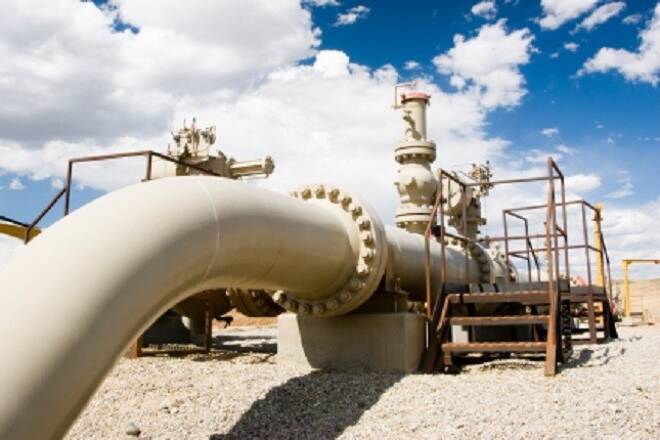Advertisement
Advertisement
Natural Gas Price Prediction – Prices Slip Ahead of Inventory Report
By:
Natural gas prices slide despite cold weather forecast
Natural gas prices eased on Wednesday, failing to add to a 3-day rebound. This comes despite a colder than normal forecast which is expected to cover most of the United States for both the next 6-10 and 8-14 days according to the National Oceanic Atmospheric Administration. The cold weather is coming down from Canada into the mid-west forming a ridge through-pattern. This type of pattern could remain in place for a while increasing natural gas demand for residential heating. LNG exports are rising and could increase if there is a trade deal between the US and China. Average imports from Canada decreased during the past week, which could reduce inventories. Inventories will be released on Thursday, February 21, despite the President’s Day holiday. Expectations are for a 149 Bcf draw according to estimize.
Technical Analysis
Natural gas prices eased on Wednesday failing to add to a 3-day rebound. Prices remain depressed, with support seen near the 10-day moving average at 2.62. Resistance is seen near the 50-day moving average at 3.16. Momentum remains positive as the MACD (moving average convergence divergence) recently generated a crossover buy signal. The MACD histogram is printing in the black with an upward sloping trajectory which points to higher prices. The fast stochastic recently generated a crossover buy signal in oversold territory which points to accelerating positive momentum.
Imports Declined from Canada
Average net imports from Canada decreased by 4% from last week. Cold weather brought a rare and heavy snowfall to the U.S. Pacific Northwest and Western Canada. A cumulative 23 centimeters of snow fell in the population center of Vancouver from Sunday through Tuesday, increasing Canadian demand for heating and restricting imports into the United States. Imports into the Sumas border crossing point in Washington state fell from 705.7 MMcf per day on Friday to 643.3 MMcf per day during the event, according to the EIA. Freeze-offs in Canada may have also contributed to lower imports.
About the Author
David Beckerauthor
David Becker focuses his attention on various consulting and portfolio management activities at Fortuity LLC, where he currently provides oversight for a multimillion-dollar portfolio consisting of commodities, debt, equities, real estate, and more.
Advertisement
